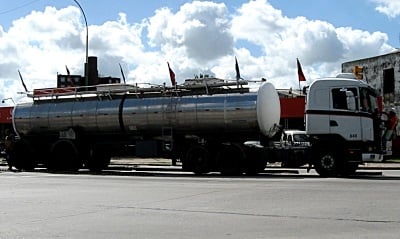Treat your fuel storage tank well and it will return the favor
Getting quality fuel that’s in-spec only means you're halfway home when you're considering stored fuel quality. The storage tank you put it in has...

Keeping ahead of the fuel problems that have hit so many others can be as simple as just knowing how to buy fuel. Sounds elementary, doesn’t it? But common sense isn’t so common these days, so they say. There are some simple things you can do to ensure the fuel you buy starts out and stays healthy for longer - especially during the new normal COVID-19 has required us to adjust to.
 It is always a best practice, when buying loads of fuels, to get the fuel specifications. Review these to make sure everything meets the minimum requirements. File the specifications away in case you need to refer to them later.
It is always a best practice, when buying loads of fuels, to get the fuel specifications. Review these to make sure everything meets the minimum requirements. File the specifications away in case you need to refer to them later.
As winter approaches, pay special attention to the cloud point and other documented cold weather specs. This will be your key for planning possible cold flow treatment for the fuel. Users up north know this is no joke. Diesel fuel users in cold weather areas should plan on treating their fuel loads with antigel treatment before the expected ambient temperatures drop to within 5 degrees of the fuel's cloud point.
Whether it’s #2 diesel or biodiesel or any other fuel, these specifications are the benchmark. Fuels are legally required to meet them, so having a COA on file is your insurance policy. It documents that the fuel started out in the correct condition. Then it’s your job to keep it that way.
For some more tips on how to store your fuel correctly, check out these articles:
While it’s essential to get a COA for any fuel drop, you don’t just rely on it as the end of the story. It’s always a wise decision to do a visual inspection of the fuel you’re getting. As President Reagan used to say, 'trust, but verify'.
Draw a fuel sample yourself and check it for visual markers that something could be off. It's a simple thing to do but goes such a long way. The fuel should be clear and bright with no discernible trace of haze or suspended matter. If the fuel looks off, think twice about accepting it.
You don’t want to put clean fresh fuel into tanks full of water and sludge. That will undo the good work you did to make sure you were getting good fuel in the first place. Plus, dropping a load of fuel into a tank with existing microbial biomass contamination will kick all of that back up into the fuel, innoculating the entirety of your new load.
Your ongoing job is to keep your fuel storage tanks free of water and contaminants over time, so that when you get a fuel drop, you won’t have any nasty surprises afterwards. It may be a good idea to consult with a professional tank cleaner or fuel polishing expert to make this job easier for you. And you may want to strongly consider periodic microbial testing.
While COVID-19 has brought its fair share of challenges, it has led to some indirect benefits - one of which is cheaper fuel. It is smart to load up on fuel now while prices are low. However, make sure you follow through on that preventative fuel polishing first.

Getting quality fuel that’s in-spec only means you're halfway home when you're considering stored fuel quality. The storage tank you put it in has...
Today's advanced common rail diesel engines rely on their diesel fuel filtration system to make sure they can do their job to their peak performance....

We're continuing our blog series on testing for microbes in stored fuel and the issues/considerations that affect what those results may mean...